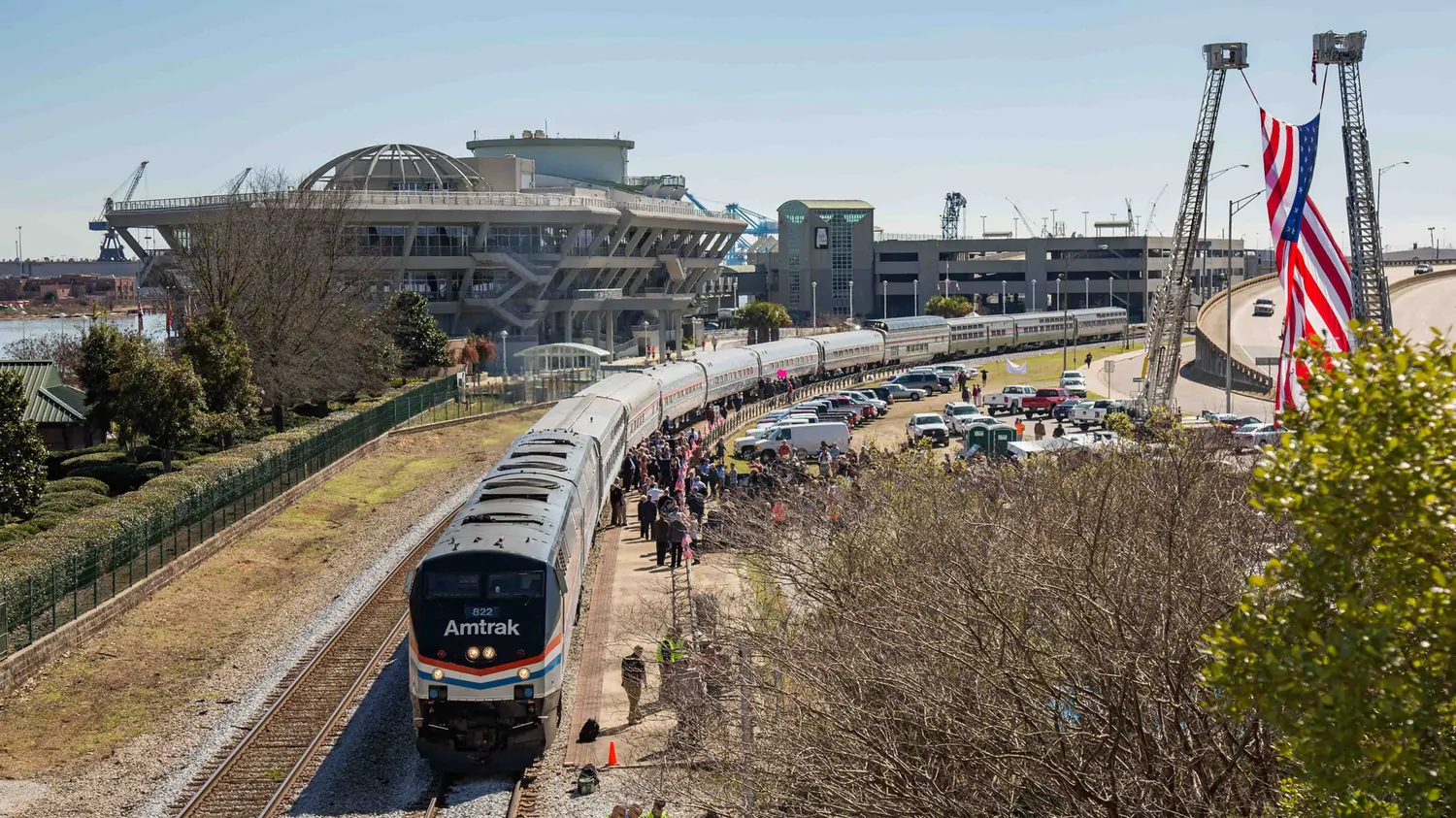Congressman Jerry Carl, R-Mobile, on Tuesday wrote a letter to the Surface Transportation Board urging that the board require Amtrak to complete a feasibility study before the federally owned passenger railroad can restore passenger service between New Orleans and Mobile.
Mobile has not had passenger rail service since 2004 and plans to restore rail service has some elected officials concerned that it could be detrimental to Alabama’s freight railroads and freight traffic in and out of the Port of Mobile. The bipartisan letter is also signed by Reps. Robert Aderholdt, Mo Brooks, Barry Moore, Gary Palmer, Mike Rogers and Terri Sewell.
“Last month, I expressed my disappointment in Amtrak’s failures to uphold its commitment to a feasibility study to demonstrate the impact of passenger rail on the Port of Mobile and the commercial interests of Alabama,” Carl said. “Amtrak’s ongoing efforts to reintroduce passenger rail service are concerning, so my colleagues and I are urging the Surface Transportation Board to require the completion of a feasibility study prior to the return of Amtrak service in Mobile, because all parties have an obligation to protect the economic interests of Alabama’s workers and businesses.”
“Amtrak service would no doubt be good for the economy of the Mobile area, but if it will come at the expense of the greater economy of the port, then that isn’t an acceptable trade off. Amtrak needs to work with all of the stakeholders to come to an equitable solution,” Aderholt said.
“In March, Amtrak abruptly made the decision to attempt to re-establish rail service along the Gulf Coast without having completed a feasibility study, which they previously agreed to carry out,” Brooks said. “To move ahead with the project despite real concerns about the rail traffic economic impact to Alabama and costs to taxpayers is wrong. The Alabama people deserve to know how this rail line is going to impact their pocketbooks. The feasibility study must be completed before moving forward.”
“Reintroducing the Amtrak passenger rail service will be undoubtedly beneficial to the economy in Alabama, but it cannot come at the expense of the Port of Mobile’s economic success,” Moore said.
“The Port of Mobile is essential to the economic vitality and well-being of Alabama’s 7th Congressional District,” Sewell said. “A comprehensive feasibility analysis should be conducted before this process moves forward.”
The Alabama congressional delegation is urging that the STB require the completion of the feasibility study prior to the return of Amtrak service to Mobile. In March, Amtrak broke off negotiations with CSX and Norfolk Southern and announced that it has made the unilateral decision to initiate the process to permit daily Amtrak trains between New Orleans and Mobile, without committing to a feasibility study to determine the impact of passenger rail on the Port of Mobile and the commercial interests of Alabama.
The federal government and the state of Alabama are investing billions in widening the shipping channel so that the Port can accommodate more freight traffic.
By federal law, freight trains have to yield the right of way to passenger trains. Amtrak’s controversial plan for twice-daily passenger rail service would mean that freight trains would have to yield to Amtrak trains four times a day as they go back and forth from Mobile to New Orleans.
Carl represents Alabama’s 1st Congressional District, which includes the Port of Mobile.














































